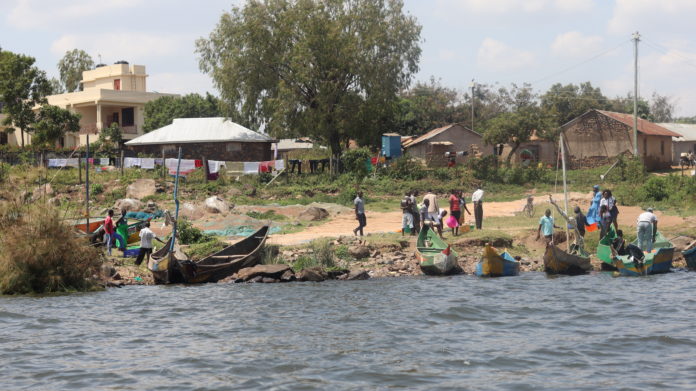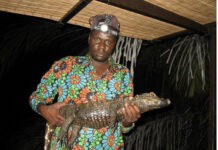By Omboki Minayo
Kisumu County, Kenya: Kisumu City’s Lake Victoria beach has once more come back to life like the mythical phoenix.
Having been battered sore by the pandemic that saw many livelihoods lost, the thriving lakeside metropolis is witnessing a resurgence in its hospitality industry.
A number of entertainment establishments are at the cusp of the wave.
Beyond the sounds of melody and merriment wafting across the lake’s moon-streaked waters, a different song holds the area captive.
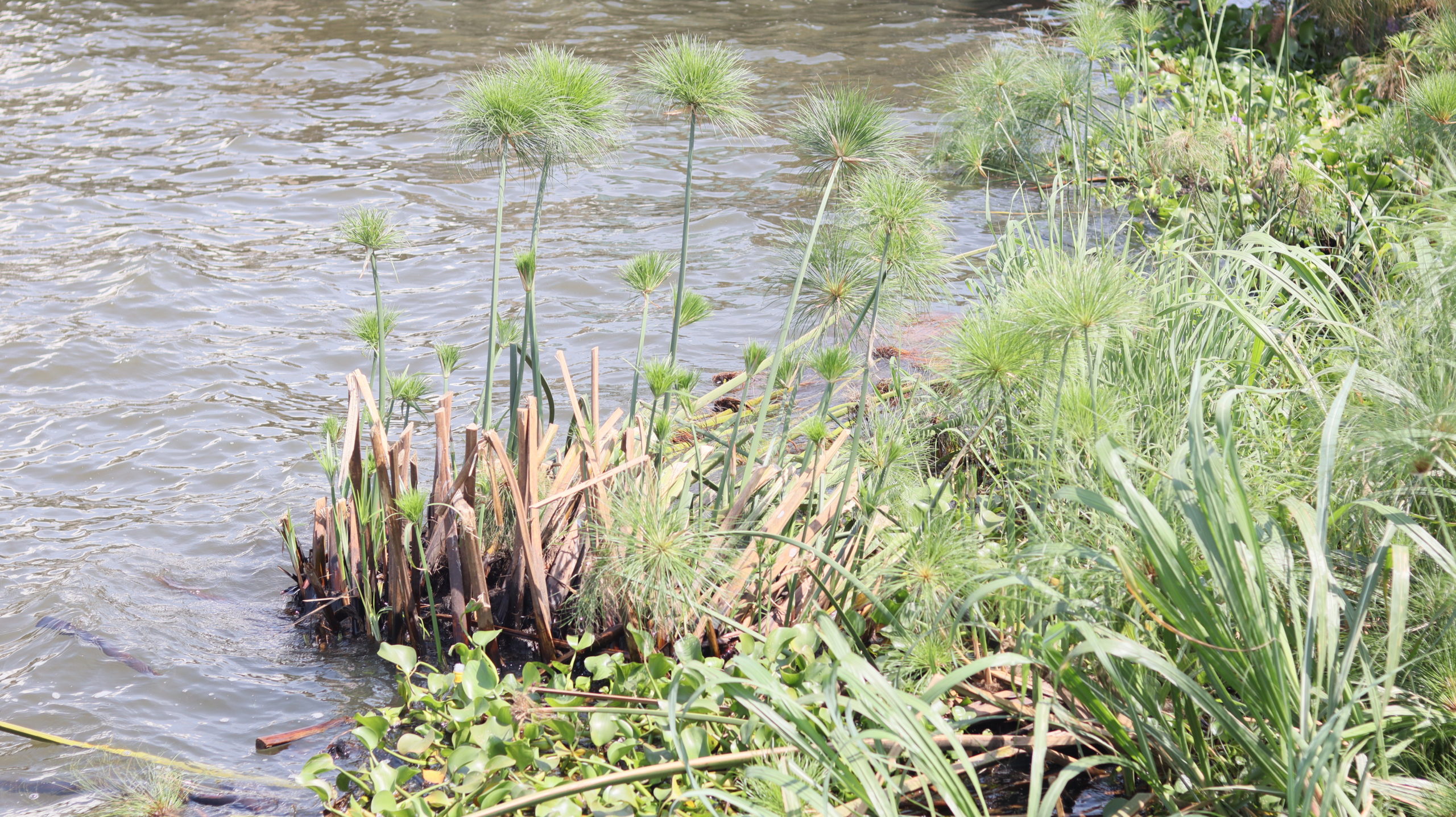
It is the desperate song of both rare and plentiful species fighting for survival amid a rising tide of human invasions.
The wetland adjacent to the lake is dwindling as the beach continues to give way to waterfronts built for visitors to enjoy a breathtaking view of the water that peels away into the distance.
At the Dunga Boardwalk, a solitary monkey hesitates for a few precious moments on the roof and looks into the surprised, pleased faces of the visitors before scampering into the green expanse of wetland foliage below.
The primate is just one of the many species that inhabit the wetland, which is home to a wide variety of plants, animals, and aquatic life.
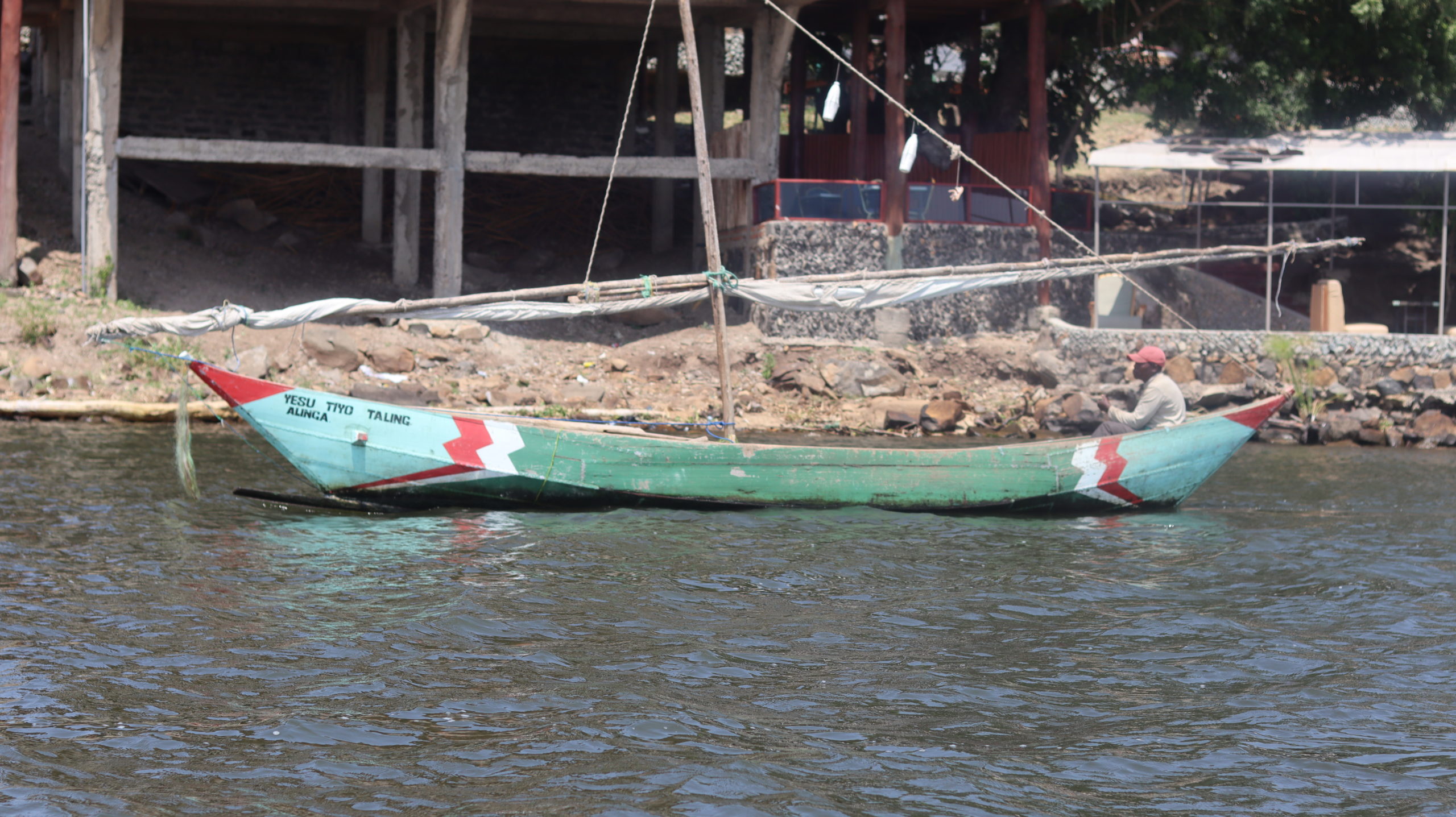
According to the National Environmental Management Authority (NEMA) Kisumu County director Tom Togo, the destruction of wetlands around Lake Victoria continues due to legitimate title deeds that permit the activity.
Mr. Togo says the challenge in stopping shore-based development lies in the possession of genuine title deeds by the developers.
He says the authority’s hands are tied when it comes to restricting developments on privately held land.
“We can enforce the law on riparian lands but when the owners have title deeds, they can always argue that the documents grant them autonomy over whatever they may wish to do on the parcels of land,” he says.
Mr. Togo is calling for the gazettement of wetlands as protected areas.
“If the wetlands are gazetted as protected areas, we will be able to enforce the regulations on riparian land,” he said.
Mr. Togo said the waterfront construction was not authorized by the regulatory body.
“All the recent shoreline developments are a sign that Nema was not consulted, and have therefore been done illegally,” said Mr. Togo.
He was addressing journalists allied to the Media for Environment, Science, Health, and Agriculture (MESHA) after a fact-finding boat trip along the shores of Lake Victoria in Kisumu City on July 12, 2022.
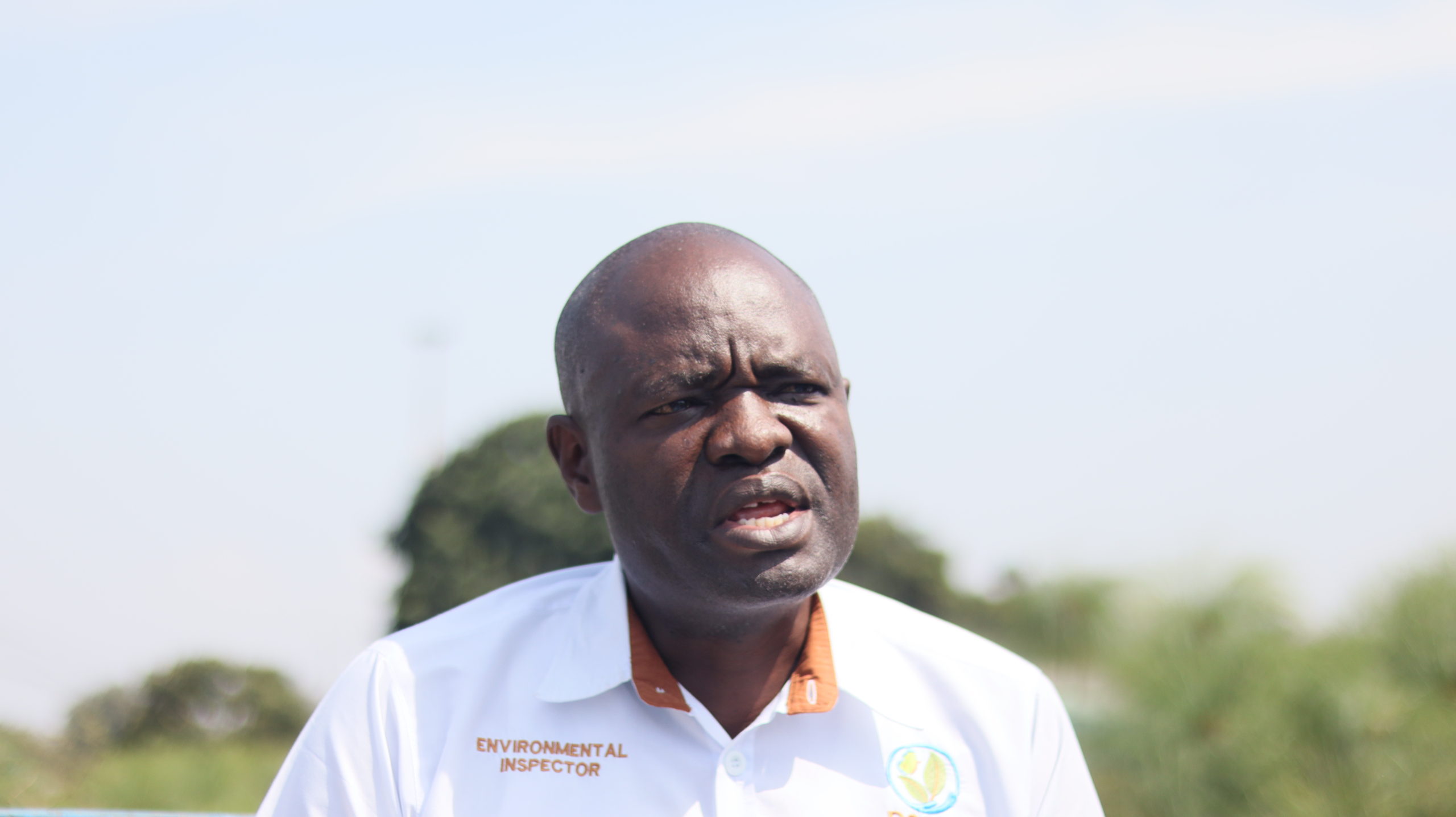
Among the wetland encroaching establishments that the media team was able to see are the Kisumu Yacht Club, which plays host to prominent personalities in national and county government as well as the business elite, the Milimani Resort, the Dunga Melon, Dunga Hill Camp, and Le Pearl, which is reportedly owned by a senior county government official.
Construction of a brand new entertainment hall at the Dunga Hill Camp was underway by the time this article was written.
The massive structure is now open for the hundreds of visitors who regularly throng the venue to rock and sway with the pulsating rhythm of the nationally popular, new generation Dholuo live band music known as Ohangla.
The Tilapia Beach establishment which had started construction at Lwangni Beach was demolished but is now the focus of a legal battle after the owner went to court to prove that the land’s documents were legitimate.
Mr. Michael Nyaguti, who chairs the Magnam Environmental Network, has fought a long bruising battle to stop the destruction of the lake’s wetland region.
He is candid about the magnitude of the struggle to save the area’s biodiversity.
“We have been fighting an uphill battle to contain the activities of the private developers that are encroaching on the wetland,” he told Talk Africa.
Mr. Nyaguti accused some of the developers of bribing some crooked members of the coast guard and the Dunga Beach Management Unit (BMU) so as to have their way in building illegal structures.
“Some of the problems we are facing are caused by greed and corruption. When you see such construction along the beach, it points to possible corruption among some unscrupulous business people greasing palms in the coast guard, NEMA, and BMU,” said Mr. Nyaguti.
He however absolved the current NEMA county director Mr. Togo and a team from blame, alleging that the previous administrators had been compromised.
“We had serious problems with the previous holder of the office that included turning a blind eye to illegal construction. Mr. Togo has however proven to be a reliable ally in the fight to conserve the wetlands,” said Mr. Nyaguti.
He has vowed to soldier on, despite the challenges that include making powerful enemies.
Mr. Nyaguti has filed several cases against prominent personalities including former governor Jack Ranguma and obtained court orders stopping development on three properties that border the lake.
He does not see it as a vendetta against the leaders and businesses, but as a legitimate cause that must be passionately pursued.
“We are concerned about the wetland as it is a breeding ground for the tilapia species and a home to many other forms of aquatic life,” the activist told Talk Africa.
“If we destroy the wetland there will be no other nearby place for the fish to breed. Construction projects on such sites are a threat to the region’s biodiversity and fish industry sustainability,” says Mr. Nyaguti.
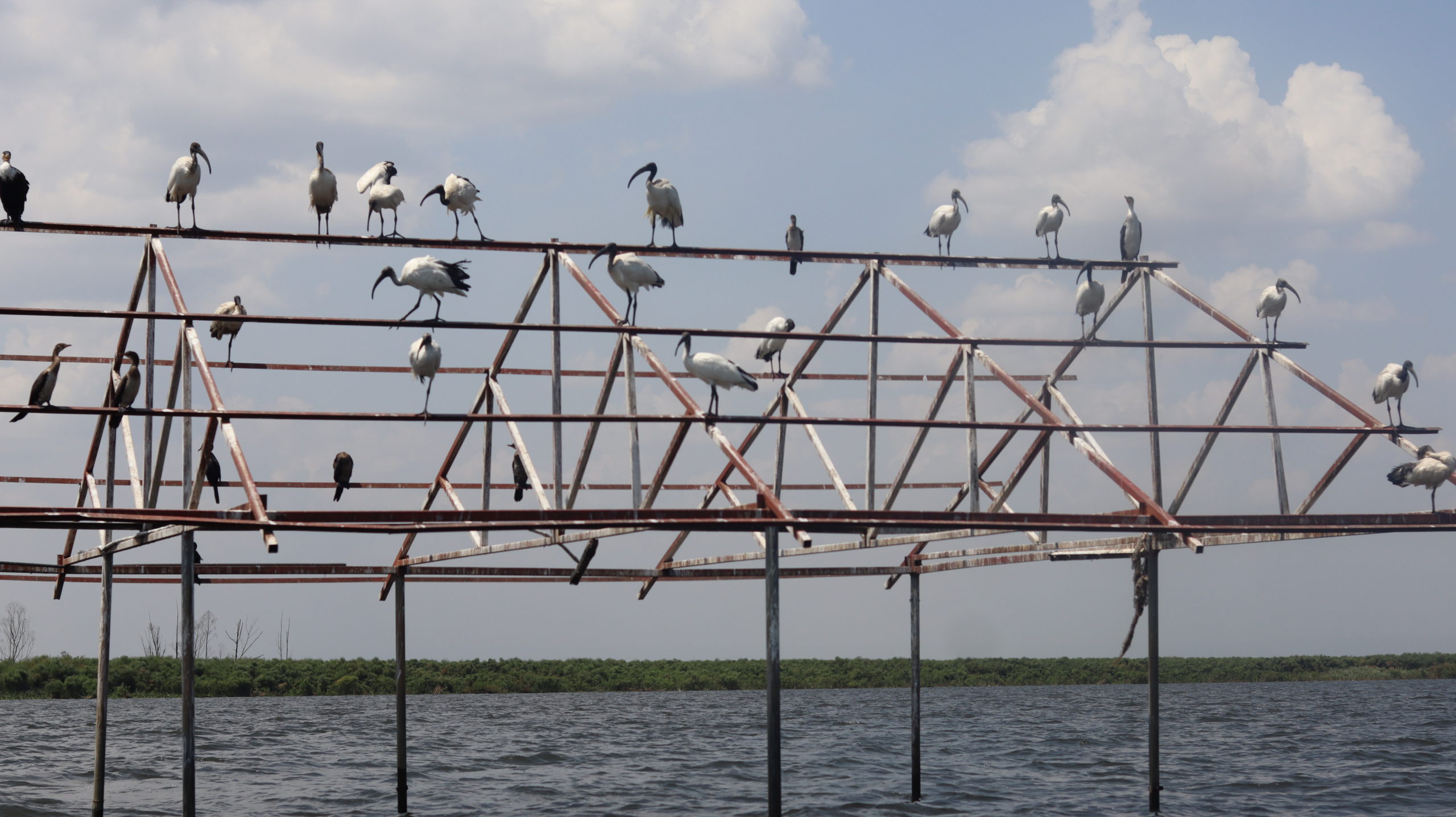
To protect Lake Victoria, also known as Nam Lolwe, he advocates for the stringent application of Nema construction regulations.
“We must all remember that the law applies equally to all. Magnam remains determined to ensure that the community protects the lake’s biodiversity for the benefit of generations to come,” he says.
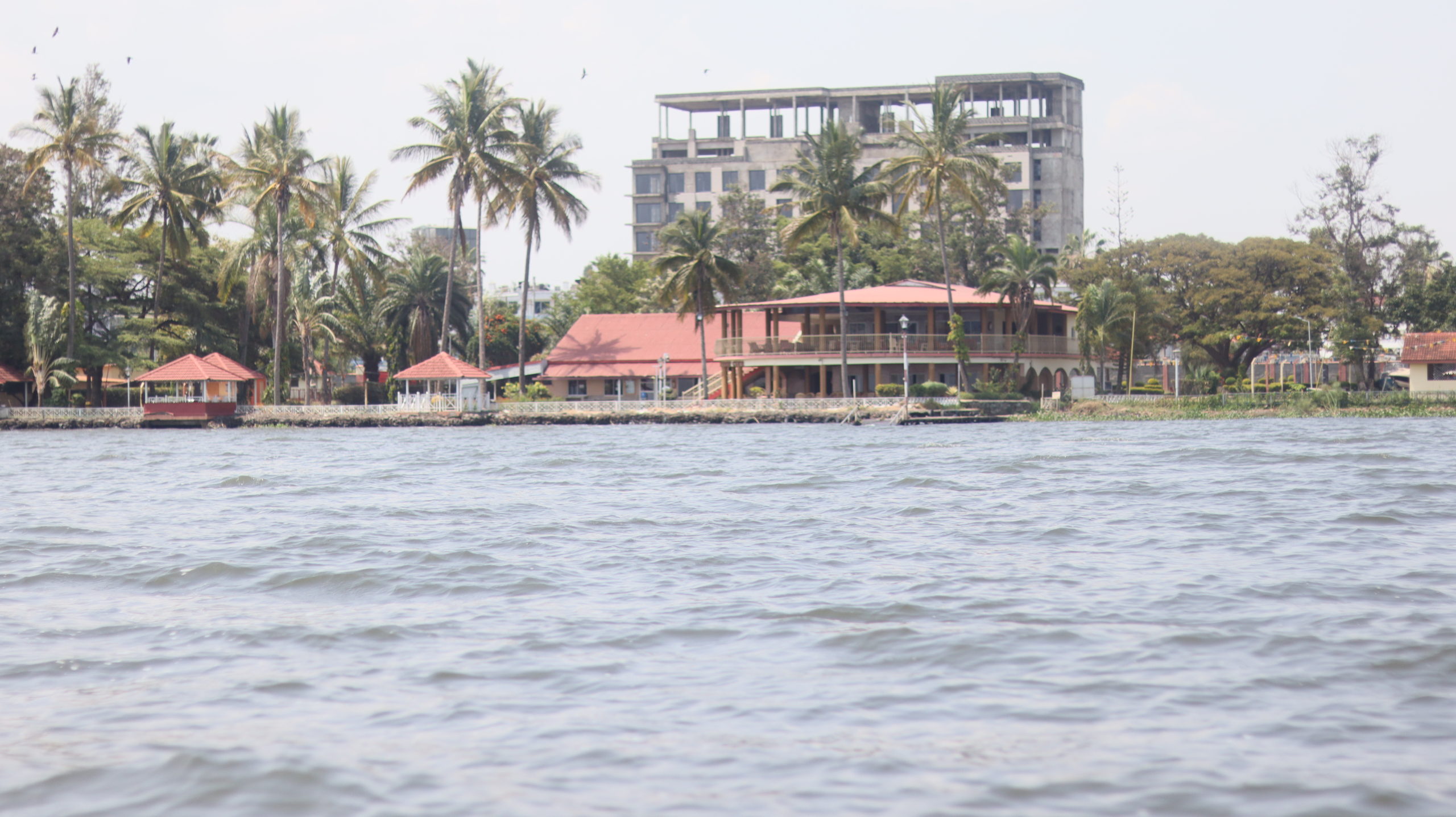
According to Mr. Victor Didi of the Dunga Ecotourism Team (DECTA), the wetland covers an area of 5 square kilometers.
The conservation community-based organization works with state bodies and other CBOs to ensure that the lake and surrounding wetlands can break free of the suffocating vice of plastic pollution.
“The beach wetland covers 5 square kilometers. To protect its biodiversity, we work in collaboration with other partners including NEMA, KMFRI, and the local beach management unit (BMU),” says Mr. Didi.
He credits the collaboration for the establishment of a regular lake cleanup campaign that sees a task force collect plastic waste from the lake and surrounding areas once every month.
“We are currently cleaning up the lake once a month. It is part of our efforts to maintain a healthier, cleaner, and more natural environment,” says Mr. Didi.
DECCTA also carries out mapping of the wetland’s natural bird species.
“Lake Victoria is home to 450 species of birds. We carry out mapping and also count the number of bird species that inhabit the region,” says Mr. Didi.
As part of its conservation mission, the group participates in marking World Migratory Bird Day which is marked on October 8.
On his part, Mr. Nyaguti is quick to praise the current National Environmental Management Authority (NEMA) county director Tom Togo for drawing a red line against rogue constructors and polluters.
“NEMA is currently doing a great job in enforcing the laid down protocols before construction is allowed to take place. This commitment has proven a boon in our efforts to stop the lake from further pollution,” Mr. Nyaguti says.
According to the NEMA county boss, the authority has rejected several applications for developments along the shoreline due to their closeness to the beach.
“The law regulating riparian lands stipulates that no construction is allowed 30 meters from the highest water point for the lake and 6 meters for rivers. We have so far rejected three applications for development along the shore for that reason,” Mr. Togo told Talk Africa.
He is emphatic that the wetland is an integral part of the lake’s biodiversity, adding that both are dependent on each other for survival.
“If we destroy the wetland, we will be left with a dead lake,” said Mr. Togo.

